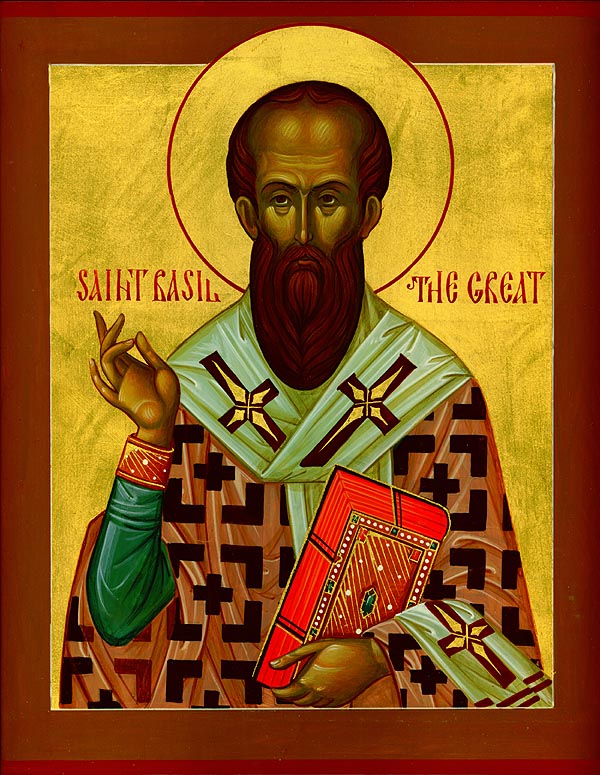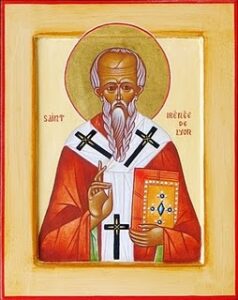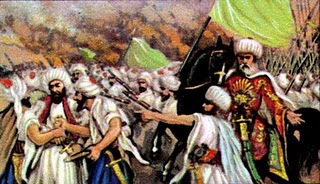This article is the fourth of a four part series in response to James White’s 13 April 2017 podcast: “Can a Consistent Eastern Orthodox Believer Be the Bible Answer Man?” For my previous responses, please see: “Response to James White” (1 of 4), (2 of 4) and (3 of 4). The purpose of these articles is not to defend Hank Hanegraaff, but to promote good reasoning and courteous interaction between Protestants and Orthodox.
Imposing Protestant Expectations on Orthodoxy
At the 16:15 mark, James White cites the Roman Catholic Catechism’s definition then declares that Orthodoxy holds to the same understanding. In 16:20, he makes the bold assertion that there is no way to define this capital “T” Tradition because there is no Tradition to begin with. For him it’s just a mishmash of arbitrarily selected sayings from Church Fathers. Here we see the imposing of Protestant expectations on Orthodoxy. This is the external expectation fallacy, that is, Orthodoxy ought to have a neat, tidy definition of theological terms like those used by Western Christians.
It seems to me that Mr. White has not done his homework. Has he not read Metropolitan Kallistos (Timothy) Ware’s modern classic The Orthodox Church? In chapter 10 “Holy Tradition: The Source of the Orthodox Faith” is a detailed and nuanced discussion of Orthodoxy’s capital “T” Tradition.
 Protestants who wish to understand what Tradition is should read Basil the Great’s (c. 329-379) description and defense of unwritten Tradition found in his classic work On the Holy Spirit:
Protestants who wish to understand what Tradition is should read Basil the Great’s (c. 329-379) description and defense of unwritten Tradition found in his classic work On the Holy Spirit:
What writing has taught us to turn to the East at the prayer? Which of the saints has left us in writing the words of the invocation at the displaying of the bread of the Eucharist and the cup of blessing? For we are not, as is well known, content with what the apostle or the Gospel has recorded, but both in preface and conclusion we add other words as being of great importance to the validity of the ministry, and these we derive from unwritten teaching. Moreover we bless the water of baptism and the oil of the chrism, and besides this the catechumen who is being baptized. On what written authority do we do this? Is not our authority silent and mystical tradition? (Chapter 27, §66)
Another important source is Irenaeus of Lyons (c. 130 – c. 202) who in Against Heresies 4.33.8 gives a detailed description of Apostolic Tradition:
8. True knowledge is [that which consists in] the doctrine of the apostles, and the ancient constitution of the Church throughout all the world, and the distinctive manifestation of the body of Christ according to the successions of the bishops, by which they have handed down that Church which exists in every place, and has come even unto us, being guarded and preserved without any forging of Scriptures, by a very complete system of doctrine, and neither receiving addition nor [suffering] curtailment [in the truths which she believes]; and [it consists in] reading [the word of God] without falsification, and a lawful and diligent exposition in harmony with the Scriptures, both without danger and without blasphemy; and [above all, it consists in] the pre-eminent gift of love which is more precious than knowledge, more glorious than prophecy, and which excels all the other gifts [of God]. [cf. ANF p. 508]
The multiple citations from a modern twentieth century bishop and two Church Fathers show that Orthodoxy does not lack for a definition of what Apostolic Tradition is. Mr. White needs to do his homework. Given his unfamiliarity with the early Church Fathers, it would be good for him and other Protestant apologists to seek the help and guidance of knowledgeable Orthodox Christians. Hasty generalizations, oversimplification, and faulty equivalence with Roman Catholicism, while entertaining, create obstacles to fruitful Reformed-Orthodox dialogue.
Closing Remarks
The purpose of this series of responses has not been to refute Mr. White as to clear away the errors and fallacies that prevent people from learning what Orthodoxy is about. Oftentimes the aim of Protestant anti-Orthodox apologetics is to prevent people from inquiring about Orthodoxy. Our goal here is to encourage people to inquire about Orthodoxy, to critically compare Orthodoxy against what Protestant assert about Orthodoxy.
Sincere Christians who are zealous to be “biblical” will see that Orthodoxy’s Holy Tradition is clearly taught in the very pages of Holy Scripture. Please read “Biblical Basis for Holy Tradition” which presents verses right out of your bible. We invite you to do your own homework too. For Western Protestants, understanding and grasping Orthodoxy take time. It will at first seem a odd and strange, but with some study and an open mind, one can begin to appreciate the rich and ancient spiritual heritage preserved from the beginning in the One Holy Orthodox Church. As part of your homework don’t neglect to attend a Sunday worship service at an Orthodox parish near you!
Robert Arakaki
Recommended Reading
Robert Arakaki. 2017. “How NOT to Do Anti-Orthodox Apologetics.”









Recent Comments